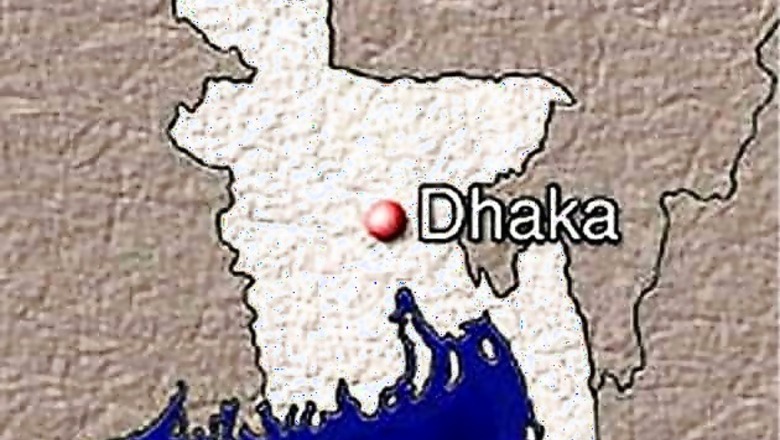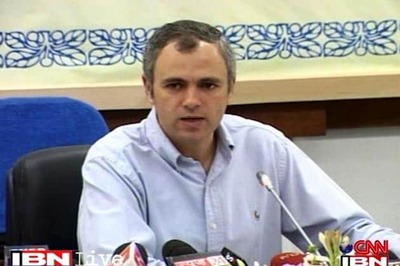
views
Dhaka: A fugitive Islamic cleric linked to the fundamentalist Jamaat-e-Islami party, who is believed to be in Pakistan, was on Monday handed down death penalty by a special Bangladesh court for crimes like murdering six Hindus and raping several women during the 1971 Liberation War.
In its maiden verdict, the three-member International Crimes Tribunal-2 sentenced 63-year-old Abul Kalam Azad, an anchor of Islamic programmes at a private TV channel, to death.
"Abul Kalam Azad (alias Bacchu Razakar) will be hanged by neck till his death," the tribunal's Chairman, Justice Obaidul Hassan, pronounced at a crowed courtroom in downtown Dhaka after the trial in absentia.
Azad, a former member of fundamentalist Jamaat-e-Islami party, fled the country in April 2012 as he was charged with "crimes against humanity" during Bangladesh's India-backed Liberation War when he sided with Pakistani troops in 1971.
The court said Azad, who also heads an Islamic charity, was awarded capital punishment as seven of the eight charges of murder, mass killing, abduction, rape and torture against him were "proved beyond doubt."
It said it was proved from witnesses' testimonies that the accused directly carried out the crimes as an armed member of 'Razakar' force, an auxiliary unit comprising Bengali-speaking collaborators of the Pakistani army in 1971.
"The accused cannot be considered merely an absentee accused. He is an absconded accused. Evading trial for the offences of which he has been charged with signifies his culpability too."
Prosecutors earlier said Azad himself had shot dead six Hindus and raped several women, the charges which were proved during the trial.
Media reports, quoting police sources, had said that Azad is believed to be hiding in Pakistan.
Lawyers said under the International Crimes Tribunal Act, Azad could avail a chance to get his verdict reviewed by the Appellate Division of the Supreme Court if he surrenders or is arrested in next 30 days, on expiry of which it would depend on the apex court to decide if his trial would be reviewed.
The verdict came as trial of eight other high-profile suspects of 1971 war crimes, mostly belonging to Jamaat-e-Islami that opposed Bangladesh's independence, was underway in two high-power special tribunals.
The first of the two tribunals was constituted on March 25, 2010 along with the special investigation agency and a prosecution cell in line with the election pledges of the ruling Awami League.
Six of the accused are stalwarts of Jamaat-e-Islami, including Ghulam Azam, the then chief of the erstwhile East Pakistan unit of the party; incumbent chief Matiur Rahman Nizami and secretary general Ali Ahsan Mohammad Mojahid; and media doyen Mir Kashem Ali, who heads the pro-Jamaat Diganta Media Corporation.
The two others, who belong to the opposition BNP, are former ministers Salahuddin Qader Chowdhury and Abdul Alim.
On November 4, 2012, Azad was indicted for eight charges of crimes against humanity, based on incidents of murder of unarmed people and rape of several women in Faridpur during the country's Liberation War in 1971.
The tribunal, which decided to hold Azad's trial in his absence as he failed to appear before it despite publication of newspaper ads asking him to show up, had appointed Supreme Court lawyer Abdus Sukur Khan as the defence lawyer for Azad.
It took only one month to complete recording testimonies of witnesses and arguments of both sides, as there were no defence witnesses in the case.
Twenty-two prosecution witnesses, including some victims and family members of the dead, had testified.
The state-appointed defence counsel failed to produce any witnesses due to non-cooperation of Azad's family member. According to officials, three million people were killed by the Pakistani army and their Bengali-speaking collaborators during the 1971 Liberation War.




















Comments
0 comment